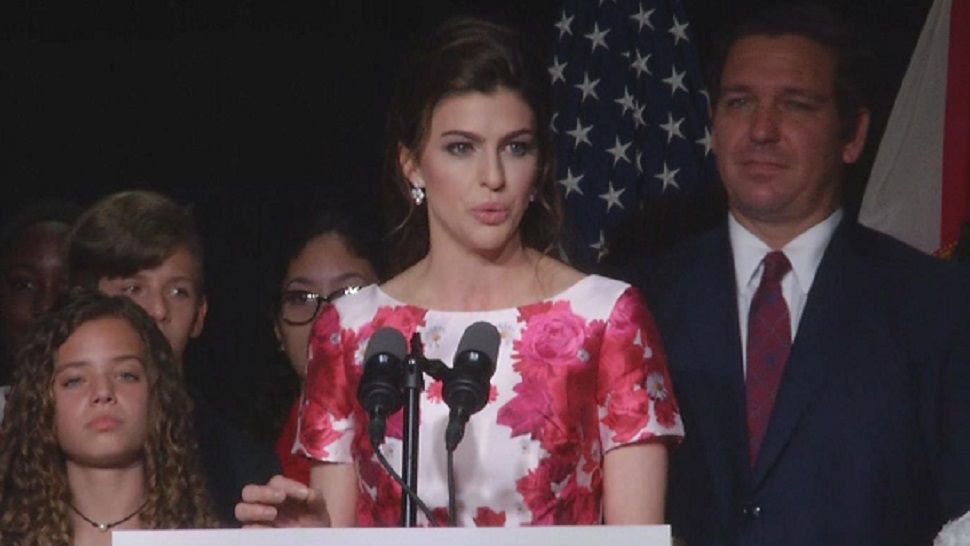TALLAHASSEE, Fla. — A five-month analysis by Spectrum News shows Florida is suspending a growing number of health care workers for defaulting on student loans. Florida lawmakers are now trying to stop those suspensions.
- Florida House OK'd Keep our Graduates Working Act this week
- Health Dept: Hundreds of health care workers at risk of losing licenses because of loan defaults
- PREVIOUS STORY: Surge in Florida health Workers Suspended for Student Loan Defaults
“We actually, as a state, are serving as a de facto credit collection agency for student loan companies, and my reaction was ‘wow, we are spending resources to go after people to hinder their ability to make a living,” said State Rep. Nick Duran, D-Miami.
Duran is a main sponsor on House Bill 115, “Keep our Graduates Working Act”. The Florida House this week unanimously passed the bill that prohibits any state agency from revoking any professional license simply because a person defaulted on a student loan.
A Senate version of the bill is expected to head to the floor after unanimously passing its three committees.
“It’s a very simple concept,” Duran said. “The reason we decided to do this across the board is because it’s explicitly in law for the Department of Health. But we wanted to clearly state that is the case across the state of Florida, whatever the profession, we shouldn’t be doing this, and this just doesn’t make sense as a state.”
Both Democrats and Republicans support the bill as co-sponsors, including Central Florida Representatives Kamia Brown (D-Orange), Anna Eskamani (D-Orange), Margaret Good (D-Sarasota), Dianne Hart (D-Hillsborough), Adam Hattersley (D-Hillsborough), Amy Mercado (D-Orange), Anthony Sabatini (R-Lake), Jennifer Webb (D-Pinellas), and Joy Goff-Marcil (D-Orange/Seminole).
Duran’s bill expands on a related proposal filed by Goff-Marcil.
“I couldn’t believe this was in the law,” Rep. Goff-Marcil said. “It doesn’t make any sense at all.”
Rapid Need for Health Care Workers
Rep. Goff-Marcil says the policy in allowing licenses to be revoked is backwards, citing the state’s inability to fill a large number of healthcare jobs.
“Right now, in terms of openings, we have 10,200 (health care) openings across Central Florida, so it’s going to increase by 18 percent through 2026,” said Jesse Buxton, Senior Manager of Business Services with CareerSource Central Florida.
Buxton says Central Florida does not have the workforce to fill the current roster of openings, much less the additional 18,000 health care jobs expected to open in the coming years.
A companion bill in the Florida Senate is expected to pass during the 2020 Session. Governor Ron DeSantis announced in last year his focus on reforms to reduce regulations and is expected to sign the bill into law if it comes across his desk.
How It Started
The U.S. Department of Education estimates Americans are past due on more than $1.5 trillion worth of student loan debt, with Florida ranking in the top 10 of states with the most number of defaulted loans.
State lawmakers first passed a bill in 2002 allowing Florida Department of Health to suspend licenses due to student loan default. From that point until the fiscal year ending in June 2017, there were a total of 31 medical licenses suspended because of student loan default.
Then came a surge.
By The Numbers
Spectrum News spent more than five months analyzing publicly available data through the Florida Department of Health’s Discipline and Administration Actions database as well as annual and quarterly reports.
Those records revealed from July 2017 until January 30, 2020, the agency issued at least 478 Emergency Suspension Orders. Of those, at least 161 licenses were revoked because of student loan default.
FDOH said approximately 900 licensed health care professionals were at risk of losing their licenses in the past two years because of loan defaults.
Spectrum News also found Florida is one of 12 states with a law allowing license revocations, but seemingly the only state actively enforcing the measure.
Officials in the 12 other states that allow license revocations due to student loan default all told Spectrum News they have not revoked any medical licenses for student loan defaults in the past two years.
“I Had to Drain My Savings To Catch Up”
State law says individuals whose licenses are revoked must pay a fine equaling 10 percent of their outstanding debt, plus reach new payment terms in order to have their licenses reinstated.
Multiple other states, including California, Montana, and Virginia, have either repealed the law entirely or have repeal bills pending in their state’s Legislature.
“I love being a nurse, you get so much satisfaction,” Joanne Ortiz, a cardiac nurse who lives in Brevard County, told Spectrum News in 2019.
She has spent more than 28 years in the healthcare field, the past 10 as a registered nurse. In 2019, Ortiz’s license was suspended because she got behind in paying her student loan.
“I had to drain my savings to catch up,” Ortiz said.
She eventually paid a $3,000 fine and negotiated new payment terms with her creditors in an effort to get her license back.
State law also requires at least 45 days’ notice prior to a license being suspended.
“Once a licensee submits proof of new payment terms on their loan and the department verifies the information provided, an order lifting the suspension is drafted and submitted for signature under the authority designated by the state surgeon general,” a Florida Department of Health spokesman told Spectrum News in 2019.
Representatives for both the Florida Department of Health and Florida Department of Education told Spectrum News in statements that they try to avoid revoking licenses when they can. According to FDOH:
“Prior to a loan defaulting, the Guarantor assistance, lenders make several attempts to establish repayment options for the borrower to prevent default. If the borrow does not establish a repayment plan after 270 days, the lender submits the loan to OSFA for claim payment. Once a claim is paid, the loan is considered in default status and a default notice is mailed to the borrower. OSFA initiates collection efforts on defaulted loans after receiving reinsurance from the U.S. Department of Education. OSFA attempts other collection activity that includes phone calls, correspondence, Administrative Wage Garnishment and Treasury Offset. Florida Statutes also allow for the suspension of Florida-licensed healthcare practitioners due to defaulted student loans issued by the state of federal government. No other licensing suspension provisions due to defaulted student loans are included in the Florida Statutes. OSFA started processing healthcare license suspensions in late 2016.”
Action Beyond Florida
Senator Marco Rubio, R-Florida, who was in the Florida Legislature in 2002 is co-sponsoring the Protecting JOBS Act with Senator Elizabeth Warren, D-Massachusetts.
Their bill would prohibit any state in the U.S. from revoking professional licenses due to student loan default.
“I actually voted for the bill that allows this to happen when I was in the (Florida) Legislature, so this is a part of an effort to correct that, because this was a mistake,” Rubio told Spectrum News in 2019.
The bill has picked up little traction since being introduced last year. Rubio’s LOAN Act, which would eliminate interest on federal student loans, is also still pending movement in the Senate.
“It makes no sense,” Senator Rubio said. “If somebody owes money on student loans, they need a job in order to pay it, and if you take away the license that allows them to work, then you’re making it even harder for them to pay back the loan.”









